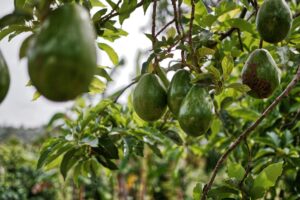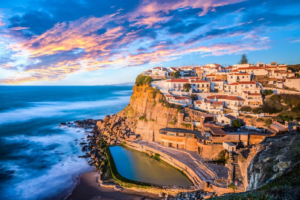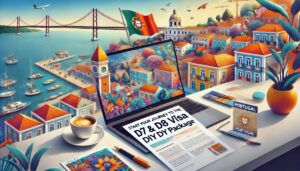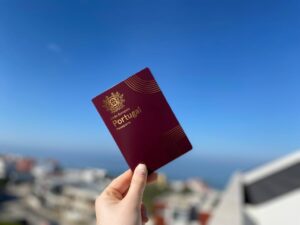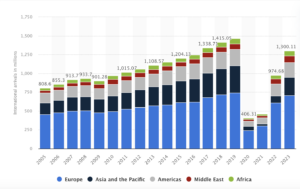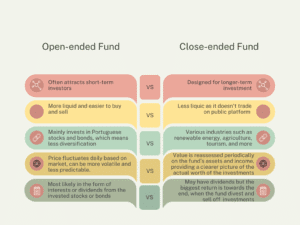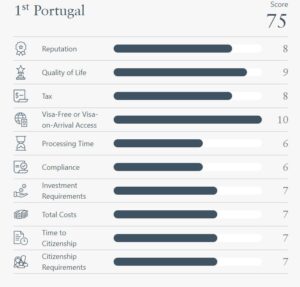As you consider relocating to Portugal with your family, understanding the education system is crucial for ensuring a smooth transition for your children. Portugal offers a diverse educational landscape, featuring public schools, private institutions, and international schools, each catering to different needs and preferences. This guide aims to provide you with detailed insights into the various options available for your children’s education in Portugal.
Public Schools: The Foundation of Education
Public schools in Portugal are funded and regulated by the government, offering free education from primary to secondary levels. The education journey begins with the 1st cycle (ages 6-9), which focuses on foundational subjects such as Portuguese, mathematics, and general knowledge. This is followed by the 2nd cycle (ages 10-11), which introduces more specialized subjects like history and geography. The 3rd cycle (ages 12-14) prepares students for their next steps, whether it be vocational training or pursuing a general track towards higher education.
One of the key advantages of public schools is their accessibility. They are widely available across the country, and the curriculum is standardized, ensuring a consistent educational experience. Public schools also emphasize social integration, providing children the opportunity to form friendships with local peers and immerse themselves in Portuguese culture.
School hours in Public schools are not standardized and varies greatly depending on the school, some school hours can go from 8:30am – 13:00pm, some can go from 9:00am – 4:00pm.
Lunch and snacks are offered in school and parents pay according to their salary range, so it can be as low as one euro per day or even free.

Private Schools: Personalized Learning Experiences
For families seeking alternatives to public education, private schools in Portugal offer a wealth of options. These independent institutions typically feature smaller class sizes, allowing for more personalized attention and tailored learning experiences. Private schools often follow the same educational cycles as public schools but may implement unique curricula and innovative teaching methods.
Private institutions might focus on specific areas such as arts, sciences, or bilingual education, catering to the diverse interests and abilities of students. Parents often appreciate the additional resources available in private schools, such as extracurricular activities, specialized programs, and enhanced facilities.
Here’s a polished version of your additional text for the private school section:
While school hours for public schools may vary significantly from half-day to full-day schedules, private schools typically follow a more standardized timetable, generally from around 9 AM to 4 PM. Most private institutions also offer fee-based extracurricular activities for children to participate in after school. Additionally, many private schools provide before- and after-school childcare services, sometimes available until 8 PM.
Lunch services are fee-based, and parents have the option to either pack a lunch from home or pay for lunch at the school. Tuition fees for private schools in Lisbon typically range from €300 to €500 per month, with an additional cost of around €120 for lunch. Fees may be lower in other cities.
Nursery Care
Nursery care for toddlers aged approximately 6 months to 3 years is very popular in Portugal, as both parents often work. One interesting feature some nurseries offer is a “parents’ night.” Once a month, the nursery remains open until 2 AM (yes, 2 AM) to allow parents to enjoy a night out. This service usually incurs an extra fee, and parents can pick their children up anytime before 2 AM. The nursery provides dinner for the kids and ensures they settle down for sleep.
Kindergarten
Public kindergarten is not very common, and spaces are limited since it is not mandatory. As a result, most parents opt for private institutions. Many private schools that offer the first cycle of education also provide kindergarten programs.

International Schools: Embracing a Global Perspective
International schools in Portugal are designed for expatriate families and those seeking a truly global education for their children. These institutions offer curricula such as the International Baccalaureate (IB) or Cambridge Assessment International Education, integrating local and international educational standards.
The focus on multiple languages and multicultural education prepares students for success in an interconnected world. International schools encourage critical thinking, creativity, and global awareness, fostering a sense of international mindedness among students. The diverse student body, composed of children from various cultural backgrounds, enriches the learning environment, promoting mutual understanding and collaboration.
Facilities and Resources
Regardless of the type of school you choose, many institutions in Portugal prioritize providing excellent facilities and resources. Modern classrooms, well-equipped science labs, libraries, and sports facilities are commonly available, empowering students to explore their interests and develop their skills. Many schools emphasize experiential learning, offering project-based activities that engage students and enhance their educational experience.
Student Diversity: A Rich Tapestry of Cultures
One of the most enriching aspects of attending an international school in Portugal is the opportunity to interact with a diverse student body. Students from different countries and backgrounds come together, creating a vibrant community that celebrates cultural differences. This multicultural setting not only enriches the educational experience but also prepares students to thrive in a globalized world.
Discover the Top International Schools in Portugal—Click Here!
International Sharing School
Recently, I had the pleasure of visiting one of the most avant-garde international schools in Lisbon: The International Sharing School. This institution offers education from nursery through grade 12 and follows the International Baccalaureate (IB) curriculum. It boasts the largest school campus in Portugal, currently serving around 700 students. Plans are underway to construct an additional building, along with boarding facilities and a parents’ hub on the Oeiras campus (midway between Lisbon and Cascais), which will accommodate up to 1,500 students.
The student body is diverse, representing 60 different nationalities, with Portuguese-speaking students comprising 15% of the total enrollment. The school utilizes an open space concept that resembles co-working offices, and classes primarily focus on project-based activities, with entrepreneur studies at a young age.
In addition to the Oeiras campus, the school has two more campuses: one in Madeira, which is set to open next year, and another in the Algarve, which is currently operational but undergoing renovations for further expansion.
Tuition fees range from €1,500 to €3,000 per month, increasing as students progress to higher grades, making it the most expensive international school in Portugal. It is quickly becoming the ‘IT’ school in Lisbon.
Do you know that you can invest in the development of this international school via a fund and apply for the Portugal Golden Visa with this investment? Talk to us to learn more!

Conclusion: Unlocking the Doors to Education in Portugal
From the foundational education offered in public schools to the personalized attention found in private institutions and the global perspective provided by international schools, Portugal’s educational system caters to a wide array of family needs and aspirations. With a steadfast commitment to high-quality education, the country equips students with essential knowledge and skills while encouraging them to explore their passions and reach their full potential.
As you embark on this exciting journey, rest assured that Portugal offers a variety of educational opportunities that can help your children thrive. By understanding the landscape and options available, you can make informed decisions that will positively impact your family’s experience in this beautiful country. Welcome to Portugal—a land rich in culture and educational possibilities!
There are school rankings in Portugal that evaluate both public and private institutions based on various criteria, including academic performance. One notable source for these rankings is the Observer newspaper, which collaborates with Nova SBE business school to publish rankings that consider average student grades in final exams across different schools.
Here is the link to the 2023 ranking. It is only in Portuguese.







